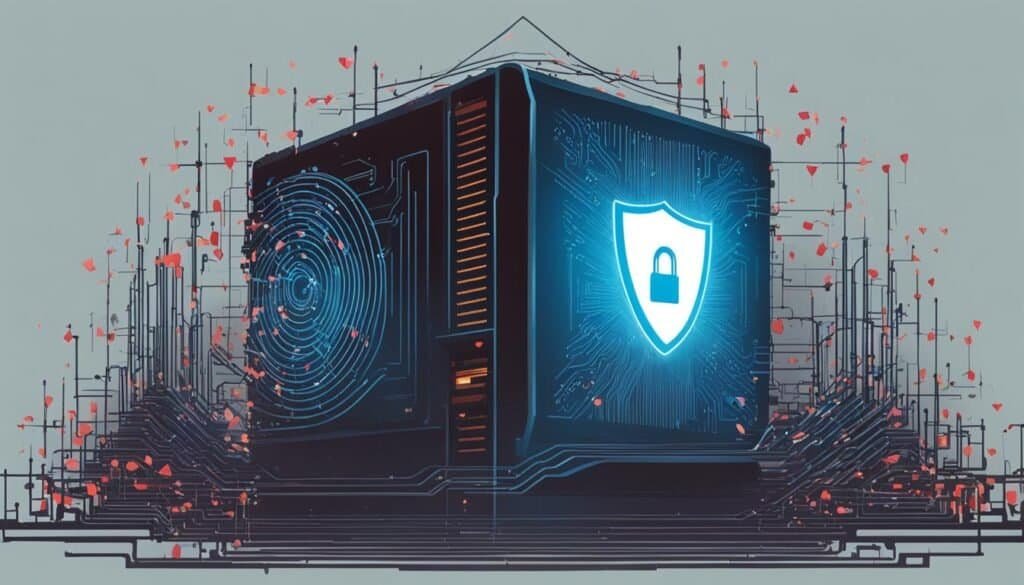As technology continues to advance, so do the methods of cybercriminals seeking to exploit vulnerabilities in computer systems and gain access to sensitive data. Hacking is a prevalent cybersecurity threat that affects individuals, businesses, and governments alike. It is vital to understand the reasons why hacking is possible and the vulnerabilities that enable it in order to protect against this threat.
Hacking is possible due to security vulnerabilities, which are weaknesses or flaws in a computer system's design, implementation, or use. These vulnerabilities can be the result of a human error, faulty software, outdated hardware, or a lack of regular software updates and security patches. Cybercriminals employ a wide range of techniques to exploit these vulnerabilities and gain access to sensitive information.
The consequences of a successful hack can be severe, ranging from financial loss to reputational damage and legal consequences. It is essential to understand the nature of cyber threats and take proactive measures to protect against them.
Key Takeaways:
- Hacking is a prevalent cybersecurity threat that affects individuals, businesses, and governments alike.
- Security vulnerabilities enable cybercriminals to exploit weaknesses in computer systems and gain access to sensitive information.
- Cybercriminals use a range of techniques to breach security systems and gain unauthorized access to data.
- The consequences of a successful hack can be severe, ranging from financial loss to reputational damage and legal consequences.
- It is essential to understand the nature of cybersecurity threats and take proactive measures to protect against them.
Common Vulnerabilities Exploited by Hackers
In today's digital age, security breaches and hacking attempts have become a widespread threat. Cybercriminals are continuously on the lookout for vulnerabilities to exploit, putting individuals and organizations at risk of data breaches and other cybersecurity threats. In this section, we will discuss the common vulnerabilities exploited by hackers and the importance of safeguarding personal data.
Security Breaches
One of the most common vulnerabilities exploited by hackers is security breaches. In recent years, we have witnessed numerous high-profile incidents where hackers gained unauthorized access to sensitive information, causing significant harm to individuals and organizations.
These breaches occur due to various reasons, including weak passwords, outdated software, and insufficient cybersecurity measures. For instance, a recent study found that 81% of hacking-related breaches occurred due to compromised, weak, or stolen passwords.
To protect against security breaches, individuals and organizations must implement robust cybersecurity measures, including the use of strong passwords, regular software updates, and security tools such as firewalls and antivirus software.
Personal Data Protection
Another common vulnerability that hackers exploit is personal data protection. Cybercriminals target personal data such as credit card information, social security numbers, and other sensitive information to carry out identity theft and other fraudulent activities.
To protect personal data, individuals and organizations must implement strict data protection policies. This includes encrypting sensitive data, limiting access to authorized personnel, and implementing secure data storage practices.
The Importance of Vigilance
While implementing robust cybersecurity measures is crucial, it is equally essential to remain vigilant against potential threats. Cybercriminals continuously evolve their tactics, making it critical to stay up-to-date on the latest security trends and implement preventative measures accordingly.
By understanding the common vulnerabilities that hackers exploit and implementing effective cybersecurity measures, individuals and organizations can safeguard against potential security breaches and protect their valuable data from cybercriminals.
To summarize, security breaches and personal data protection are common vulnerabilities that hackers exploit, making it essential to implement robust cybersecurity measures and remain vigilant against potential threats. By doing so, individuals and organizations can protect their valuable data and safeguard against potential cybersecurity risks.
Understanding Different Hacking Techniques
Hackers employ various techniques to exploit vulnerabilities and gain unauthorized access to sensitive information. Understanding these techniques is essential to implement effective cybersecurity measures and prevent potential breaches.
1. Phishing attacks: One of the most common hacking techniques, phishing attacks, involves tricking individuals into divulging sensitive information such as login credentials or credit card details. Hackers send fraudulent emails or messages that appear legitimate to the target, leading them to unknowingly provide sensitive data.
2. Malware: Malware is malicious software that hackers use to gain unauthorized access to a network or system. This software can infect devices in various ways, including through email attachments, downloads, or website links. Once installed, the malware can provide the hacker with access to sensitive information or the ability to control the compromised system.
3. SQL Injection: SQL injection is a technique that hackers use to exploit vulnerabilities in a website or application's database. By injecting malicious code into a form, login page, or search box, the hacker can gain access to user data or even take control of the entire system.
4. Social Engineering: Social engineering involves manipulating individuals into revealing sensitive information or performing actions that can compromise security. This technique plays on human emotions and relies on psychological manipulation. Hackers may use tactics such as impersonation, pretexting, or baiting to gain the trust of the target and obtain sensitive data.
To safeguard against these hacking techniques, implementing robust cybersecurity measures is crucial. Some preventive measures include using strong passwords, installing antivirus software, and educating employees on cybersecurity best practices.
Best Practices in Cybersecurity Measures
Implementing effective cybersecurity measures is not just about preventing hacking attempts; it is also about minimizing the impact of potential breaches. Some best practices in cybersecurity measures include:
- Regularly updating software and security systems
- Conducting security audits and risk assessments
- Encrypting sensitive data
- Limiting access to sensitive information
- Backing up data and maintaining data recovery plans
By implementing these best practices, individuals and organizations can mitigate the risks of hacking and protect their valuable data.
The Implications of Hacking
Hacking poses significant risks to individuals and organizations alike, with potentially severe implications for online privacy and security. Cybersecurity threats such as hacking can lead to data breaches, theft of personal information, or financial losses. The risks associated with hacking are not limited to financial losses; they can have long-lasting effects on a person's reputation, online presence, and overall well-being.
The implications of hacking can range from minor inconveniences to severe and long-lasting consequences. Victims of hacking attacks may suffer financial or personal damage, including identity theft and reputational harm. In some cases, hacked online accounts can be used to spread harmful content or to scam other users, causing even more harm.
"Hacking is not a victimless crime and can have far-reaching implications that can affect people in ways they may not even realize."
Online privacy is also a significant concern when it comes to hacking. Personal data, including sensitive financial information, can be exposed through hacking, making it vulnerable to exploitation by cybercriminals. Inadequate cybersecurity measures can make it easy for hackers to gain unauthorized access to personal information, resulting in potential loss or misuse of sensitive data.
Furthermore, hacking can have severe implications for businesses and organizations. A single successful hack can result in significant financial losses, as well as reputational damage that can be difficult to repair. The cost of cybersecurity breaches can extend far beyond the financial impact, with potential legal repercussions and regulatory penalties.
Overall, the implications of hacking are vast and wide-ranging, with significant risks posed to online privacy, security, and financial stability. It is crucial to implement robust cybersecurity measures to safeguard against hacking attempts and protect personal data from potential breaches.
Safeguarding Against Hacking

Hacking prevention and implementing robust cybersecurity measures are essential in protecting against online security threats. Here are some crucial steps individuals and organizations can take to reduce their risk of being hacked:
1. Keep software up to date
Software updates typically include security patches and fixes that address known vulnerabilities. Ensuring that all software is up to date is an essential step in safeguarding against hacking attempts.
2. Use strong and complex passwords
Using strong and complex passwords can make it more difficult for hackers to gain unauthorized access to online accounts. Consider using a password manager or passphrase to generate and store unique passwords for each account.
3. Enable two-factor authentication
Two-factor authentication provides an extra layer of security by requiring an additional form of identity verification before accessing an account. Enabling two-factor authentication can significantly reduce the risk of unauthorized access.
4. Regularly back up important data
Regularly backing up important data can help minimize the impact of a potential security breach. Ensure that backups are stored securely, and test recovery procedures regularly to ensure they are functional.
5. Educate employees and staff
Employees and staff should be aware of cybersecurity best practices and potential threats. Regular training and awareness programs can help employees identify and report potential security risks, reducing the overall risk of a successful hacking attempt.
"Prevention is better than cure." This old adage holds especially true when it comes to hacking and cybersecurity. By taking proactive steps to safeguard against potential threats, individuals and organizations can minimize the risk of a costly and damaging security breach.
The Role of Cybersecurity in Hacking Prevention
In today's interconnected world, cybersecurity measures are crucial in preventing hacking attempts and safeguarding sensitive information. Cybersecurity professionals play a crucial role in identifying potential vulnerabilities and implementing effective security measures to mitigate hacking risks.
There are several cybersecurity measures that individuals and organizations can adopt to prevent hacking attempts. One of the most important measures is to keep software and operating systems up to date. Regular software updates often include security fixes that address known vulnerabilities.
Another crucial measure is to implement strong passwords and two-factor authentication. Weak passwords are easy targets for hackers, and two-factor authentication adds an extra layer of security to prevent unauthorized access to sensitive information.
Encryption is another effective cybersecurity measure that can prevent hacking attempts. By encrypting sensitive data, even if it falls into the wrong hands, it is impossible to read without the decryption key.
Network security is also a crucial component of hacking prevention. Firewalls, intrusion detection systems, and virtual private networks (VPNs) are all effective measures to protect against hacking attempts.
Cybersecurity is an ever-evolving field, and it's essential to stay up to date on the latest threats and vulnerabilities. By attending security conferences and keeping up with the latest cybersecurity news, individuals and organizations can stay informed and better protect themselves and their sensitive data.
"It's not a question of if a company will be hacked, but when." - Robert Herjavec
Robert Herjavec's statement underscores the importance of taking proactive measures to prevent hacking attempts and safeguard sensitive information. By implementing robust cybersecurity measures and staying vigilant against emerging threats, individuals and organizations can minimize hacking risks and protect their valuable data.
Safeguarding Against Hacking

In today's digital age, personal data protection has become more critical than ever. Hackers have a wide range of techniques at their disposal to breach security systems and gain unauthorized access to sensitive information. However, individuals and organizations can take preventive measures to protect themselves against hacking attempts. Implementing robust cybersecurity measures is the key to safeguarding against hacking.
The Importance of Cybersecurity Measures
Effective cybersecurity measures play a crucial role in preventing hacking attempts. By creating a secure environment, individuals and organizations can minimize the risks of unauthorized access to sensitive data. Some of the essential cybersecurity measures include:
- Keeping software up to date and patched
- Using strong passwords and changing them regularly
- Enabling two-factor authentication wherever possible
- Avoiding clicking on suspicious links or downloading unknown attachments
- Installing reputable antivirus software and firewalls
By following these best practices, individuals and organizations can significantly reduce the likelihood of falling victim to hacking attacks.
The Role of Education and Training
Education and training are essential components of any cybersecurity strategy. By providing employees with appropriate training, individuals and organizations can improve their cybersecurity awareness and reduce the risks of data breaches. Some of the essential topics that training should cover include:
- Best practices for password creation and management
- How to identify phishing attempts and other social engineering attacks
- Proper use of public Wi-Fi networks and other potential security risks
Through education and training, individuals and organizations can create a culture of cybersecurity that reduces the risks of hacking attempts.
The Importance of Personal Data Protection
Personal data protection is essential for safeguarding against hacking attempts. Individuals and organizations must take steps to protect their sensitive data from unauthorized access. Some of the essential measures include:
- Encrypting sensitive data wherever possible
- Avoiding oversharing personal information on social media platforms
- Using secure communication channels when transmitting sensitive data
- Regularly reviewing and updating privacy policies and security measures
Through these measures, individuals and organizations can protect their data and minimize the risks of hacking attempts.
"Effective cybersecurity measures play a crucial role in preventing hacking attempts. By creating a secure environment, individuals and organizations can minimize the risks of unauthorized access to sensitive data."
The Implications of Hacking
Hacking poses a significant cybersecurity threat to individuals and organizations alike. The implications of hacking can extend far beyond the initial breach, impacting multiple aspects of one's personal and professional life.
Cybersecurity threats have become increasingly sophisticated, paving the way for more frequent and severe hacking attempts. As a result, it is essential to understand the risks associated with hacking and take preventive measures to protect against potential breaches.
The Risks Associated with Hacking
Hacking can have severe consequences, both financially and personally. Cybercriminals can gain access to sensitive data, including personal information, financial details, and confidential business information, which they can use to commit identity theft, fraud, and other criminal activities. In some cases, hackers can also cause physical damage to critical infrastructure, such as power grids or transportation systems.
The Importance of Online Privacy
Online privacy has become a hot topic in recent years, as more people use the internet to conduct personal and professional activities. Protecting personal data against hacking attempts is crucial to safeguarding one's online privacy. By implementing robust cybersecurity measures, individuals can protect their sensitive information from potential breaches and minimize the risks associated with hacking.
Minimizing Hacking Risks
Minimizing hacking risks requires a proactive approach to cybersecurity. Individuals and organizations must implement effective security measures to protect against potential breaches, such as firewalls, antivirus software, and intrusion detection systems. It is also essential to stay informed of emerging threats and implement continuous updates and patches to keep systems secure.
The Importance of Cybersecurity Awareness
Cybersecurity awareness is critical in minimizing hacking risks. Individuals must exercise caution when opening emails, downloading attachments, and sharing personal information online. It is also crucial to use strong, unique passwords and enable two-factor authentication whenever possible.
The Role of Cybersecurity Professionals
Cybersecurity professionals play a crucial role in preventing hacking attempts. They are responsible for developing and implementing robust security measures, monitoring systems, and responding to potential breaches. It is essential to invest in the services of qualified cybersecurity professionals to protect against potential cybersecurity threats.
Future Challenges
The ever-evolving nature of hacking presents significant challenges for individuals and organizations alike. As hackers become more sophisticated, it is necessary to implement continuous adaptations to ensure the ongoing protection of personal and professional data. Staying informed of emerging threats and implementing effective cybersecurity measures is crucial in mitigating hacking risks.
Conclusion
As we have discussed in this article, hacking is a prevalent cybersecurity threat that can have severe implications for individuals and organizations alike. However, by implementing robust cybersecurity measures and staying vigilant against emerging threats, it is possible to minimize hacking risks and protect valuable data in today's interconnected world.
The Importance of Cybersecurity Measures
The first step towards safeguarding against hacking is to implement comprehensive cybersecurity measures. This includes using strong and unique passwords, regularly updating software and operating systems, and enabling two-factor authentication whenever possible. It is also crucial to limit the amount of personal information shared online and to be cautious of suspicious emails or messages.
Understanding Hacking Risks
It is essential to recognize the potential risks and implications of hacking attempts. Not only can it result in the loss of personal and sensitive data, but it can also damage reputation and financial losses for organizations. By staying informed about emerging threats and vulnerabilities, individuals and organizations can take proactive measures to prevent potential breaches.
The Need for Continuous Adaptation
As technology continues to evolve, so do the tactics and techniques employed by hackers. It is imperative to stay updated and adapt to changing cybersecurity threats and implement effective countermeasures. This includes regular security training for employees and investing in modern cybersecurity technologies.
In conclusion, protecting against hacking requires a comprehensive understanding of the risks and vulnerabilities involved, as well as a proactive approach to implementing robust cybersecurity measures. By taking these steps, individuals and organizations can safeguard valuable data and minimize the potential impact of hacking attempts.
What Are the Potential Consequences of Hacking in Our Digital World?
The power of hacking in our digital world cannot be underestimated. Its potential consequences are far-reaching and devastating. From financial theft and identity fraud to data breaches and invasion of privacy, hacking poses a significant threat to individuals, businesses, and even governments. It compromises security, undermines trust, and can disrupt essential services. Protecting ourselves from this ever-evolving threat is crucial in safeguarding our digital landscape.
FAQ
Why is hacking possible and how does it work?
Hacking is possible due to vulnerabilities in security systems that hackers exploit to gain unauthorized access to sensitive information. They employ various techniques such as phishing, malware, or exploiting software vulnerabilities to breach security defenses.
What are the common vulnerabilities exploited by hackers?
Hackers often exploit security breaches and weaknesses in software, networks, or human behavior. Weak passwords, unpatched systems, or social engineering techniques are commonly targeted vulnerabilities.
What are some common hacking techniques?
Cybercriminals use various techniques like malware attacks, phishing scams, social engineering, SQL injections, or denial-of-service attacks to compromise systems and gain unauthorized access to data.
What are the implications of hacking?
Hacking can lead to severe consequences, including unauthorized access to personal or financial data, identity theft, financial loss, reputational damage, or disruption of critical systems.
How can I safeguard against hacking?
To protect against hacking, it's important to implement robust cybersecurity measures such as using strong passwords, regularly updating software, being cautious of suspicious emails or links, and utilizing firewalls and antivirus software.
What role does cybersecurity play in preventing hacking?
Cybersecurity plays a crucial role in preventing hacking attempts by implementing effective security measures, conducting regular vulnerability assessments, and promptly responding to incidents to minimize risks and safeguard sensitive information.
How can I protect my personal data in the digital age?
Protecting personal data requires implementing strong cybersecurity measures such as encrypting sensitive information, using secure networks, regularly updating privacy settings, and being cautious about sharing personal information online.
What are the rising cybersecurity threats and future challenges?
The cybersecurity landscape is continuously evolving, and new threats emerge regularly. Some rising threats include ransomware, IoT vulnerabilities, and advanced persistent threats. Future challenges include the need for improved defense mechanisms and keeping pace with rapidly evolving hacking techniques.
Conclusion
Understanding why hacking is possible requires recognizing vulnerabilities, implementing robust cybersecurity measures, and staying vigilant against emerging threats. By taking proactive steps to protect against hacking risks, individuals and organizations can safeguard their valuable data in today's interconnected world.





